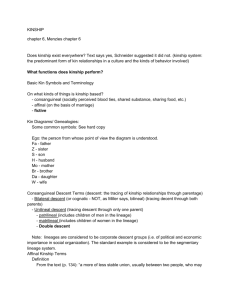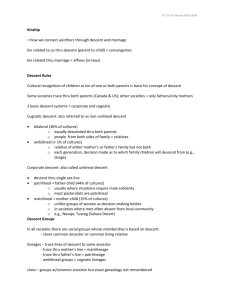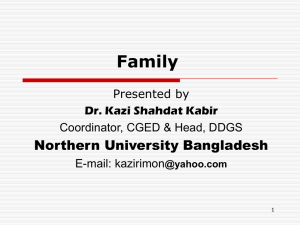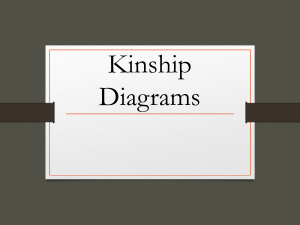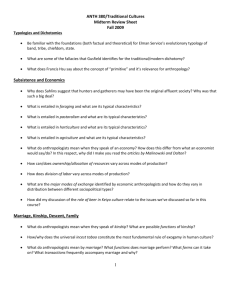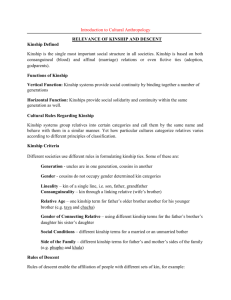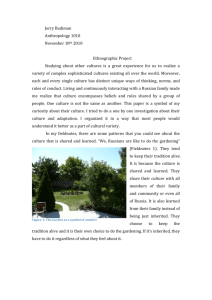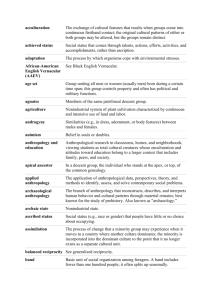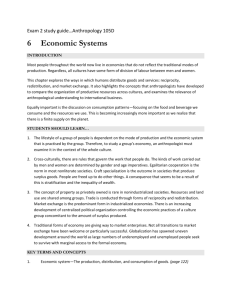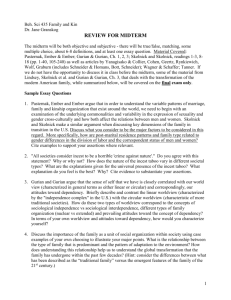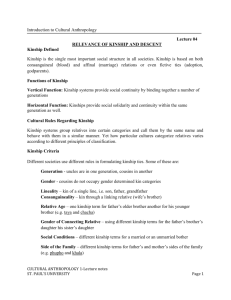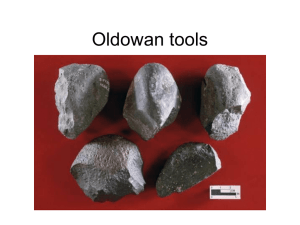Marriage and Family
advertisement
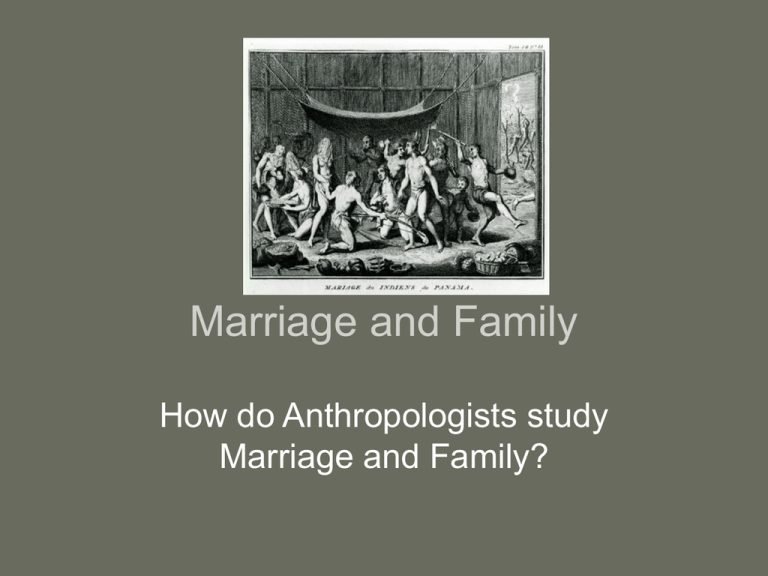
Marriage and Family How do Anthropologists study Marriage and Family? Marriage and Family • Anthropologist have traditionally studied non-industrial societies • In non-industrial societies the study of marriage and family is often discussed in terms of “kinship” and “descent” ………… KIN GROUPS AND KINSHIP CALCULATIONS • Anthropologists study the kin groups that are important to a population as well as kinship calculation (the system by which people in a society reckon kin relationships) How do anthropologists determine kinship patterns? • During fieldwork, anthropologists learn about “significant” groups by observing their activities and composition. People often live in the same village or neighborhood or work, pray, celebrate together because they are related in some way. Studying “kinship calculation” • To study kinship calculation, the anthropologist must first determine the word or words for different types of relatives used in a particular language-she does this by determining through questioning • Kinship is a lot like notions of race and gender in that they are culturally constructed-some biological kin may be considered relatives whereas others are not Kin Types and Kinship Calculation • Anthropologists distinguish between KIN TERMS (words used for different relative in a particular language) and BIOLOGICAL KIN TYPES TERMS- DESCENT GROUP • DESCENT GROUPS-composed of people claiming common ancestry, these groups are basic units in the social organization of non-industrial food producers • Descent Groups are permanent social units whose members claim common ancestry; membership is determined at birth and is lifelong DESCENT GROUPS-TERMS • Descent Groups are typically exogamous (meaning members must seek their mates from other descent groups • There are 2 rules of admittance in Descent Groups: (1) matrilineal descent(2) patrilineal descent… These are examples of unilineal descent DESCENT GROUPS -TERMS • Descent Groups can be referred to as lineages( which use demonstrated descent in which members can recite names of forebears in each generation to single ancestor) or clans (which use stipulated descent in which members simply say they descend from a single ancestor) Kinship charts NUCLEAR FAMILY • A nuclear family is different from a descent group in that a descent group is permanent • Descent group membership often is set at birth and lasts a lifetime whereas in a nuclear family people typically belong to at least two at times in their lives • Family of orientation • vs. • family of procreation IMPLICATIONS OF INDUSTIALISM • NEOLOCALITY • In 1970 married couples with kids were 40% of households; in 1995 25% • In 1970 56 million families were maintained by women; in 1995 122 million Nuclear family • Among foraging populations the nuclear family is often the most significant kin group but it is never the only significant kin group • While neolocality is the rule in the “western world”, more common is virilocality (living with husband’s relations vs. uxorilocality (living with wife’s relatives) MARRIAGE • PLURAL MARRIAGES (polygamy) • Fraternal polyandry Marriage-Nuer of African Sudan • A Nuer woman can marry a woman if her father has only daughters but no male heirs-this is a symbolic and social relationship rather than a sexual one Universal definitions of marriage • MARRIAGE CAN: • establish the legal father of a woman’s children and legal mother of a man’s children • Establish monopoly on sexual congress • Give rights to labor of other spouse • Give property rights • Establish joint fund of property for children • Establish social relation of affinity between spouses EXOGAMY AND INCEST TABOO • EXOGAMY-practice of seeking a mate outside one’s own group • INCEST-sexual relations with a close relative; there is a taboo against incest in all cultures however, people define their kin and therefore incest as well • Example of Lahker of Southeast Asia ENDOGAMY • ENDOGAMY – rules of marriage that keep group members within their defined group • Rules of endogamy exist in most cultures • Example of caste (stratified groups in which membership is ascribed at birth and is lifelong) in India ADDITIONAL TERMS • Bridewealth-customary gift before or after marriage from husband and his kin to wife and her kin • Dowry-marital exchange in which wife’s group provides substantial gifts to husband’s family • Polygyny-man has more than one wife • Polyandry-woman has more than one husband • Sororate-female substitute for deceased spouse • Levirate-male substitute for deceased spouse Additional Terms • Polygyny –form of polygamy within which man has more than one wife • Polyandry-form of polygamy within which woman has more than one husband
